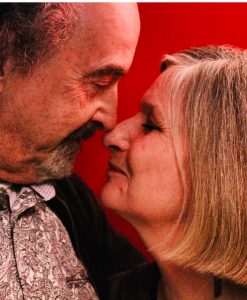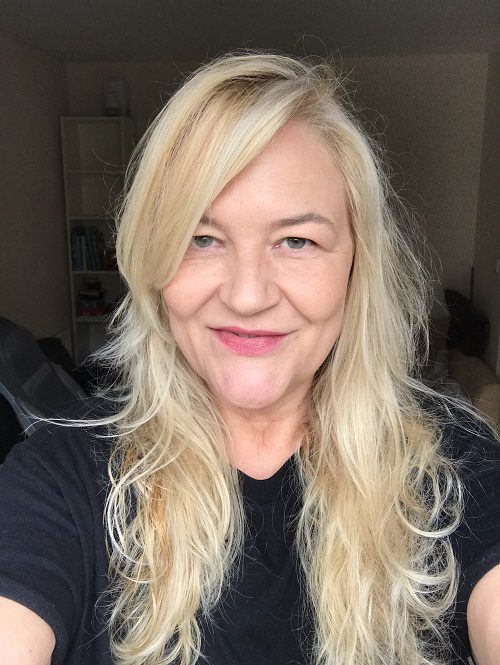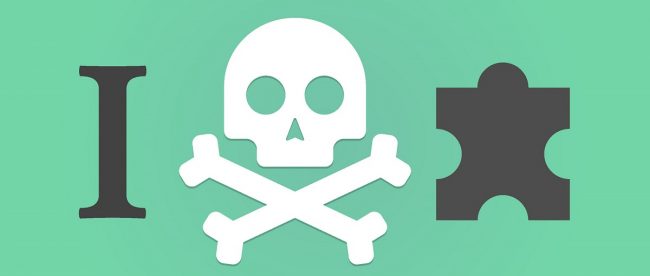He has dementia. I’m not keen to play ‘ain’t it awful?’ with a roomful of other people
Helen is 71 and lives in Exeter with her partner of 30 years, Ian, and is guardian to her teenage granddaughter. Ian has dementia, and she is coping alone with her ward, and her increasingly erratic partner. This is her story.
I met Ian in 1990. I was attending a counselling course at university at that time, and in 1992 went on to do a further training in Gestalt Therapy, where I achieved my diploma.
For the first 10 years Ian and I had indulged ourselves in a lovely selfish relationship. I had never before met such a kind, courteous and generous man. Ian also did a counselling course, and we found this extremely useful in sorting out any disagreements and miscommunications.
We then both began to have to deal with troubling external issues, me with family crises, and he with his employment.
Ian was becoming very withdrawn. He was having such problems at work with his record keeping and was sent for a dyslexia assessment, after which he was under constant review. He obviously found this extremely stressful and shaming.
I was also having a hard time dealing with my personal grief after losing my mother, my father, and my sister. And coping with my sadly dysfunctional daughter. She had been living as a traveller since dropping out of art college at 17, and was now living nearby with her baby daughter and an alcoholic boyfriend.
It was increasingly obvious my granddaughter was vulnerable
All along I had been keeping an eye on my granddaughter’s welfare and trying to support my daughter’s parenting efforts. But by the time my granddaughter was 10 she had started to phone me, asking me to intervene, or to come and collect her. So I decided something had to be done.
It was quite an exhausting battle to get any support, and when it came it was almost too late to be useful
When I finally managed to get social services to take notice they only did an assessment and said they would keep an eye on things. It took a lot more dramas, letters, phone calls and meetings at her school before we got action. And somehow two years later I became my granddaughter’s special guardian.
She came to live with Ian and me full time. It was quite an exhausting battle to get any support, and when it came it was almost too late to be useful. I think they hoped that I would just take over responsibility and disappear. But I was struggling with anger and resentment, and I needed somebody to care!
Meanwhile Ian was deteriorating
While all this was going on Ian was becoming increasingly burnt out at work and would come home grey with exhaustion and almost unable to speak. I phoned his doctor and got him to refer Ian for tests but they were inconclusive. Ian went off sick when his employers put him in disciplinary measures and tried to force him to apply for work in a different department or risk suspension. He could barely answer a phone by this time.
I shamed them for their shabby treatment of a loyal and highly respected employee
He asked if he could retire a year early but they refused. I was incensed and wrote to Ian’s GP asking for his support in my appeal on Ian’s behalf. And then wrote an impassioned plea, stating my belief that Ian was suffering either from burnout, or the early stages of dementia. I shamed them for their shabby treatment of a loyal and highly respected employee.
Eventually, after almost a year of various occupational health assessments and refusals for benefits etc, it was agreed that Ian would get early retirement with pension after all. I guess they were scared I might go to the press. It was a huge relief.
When did you know it was dementia?
For the past 8+ years I have watched my lovely partner become increasingly passive and seemingly unwilling or unable to communicate very much. Early tests for stroke/dementia were apparently either negative or inconclusive. But nevertheless I suspected something was wrong.
In my searches online I discovered a little-known dementia called Picks Disease
He had already tried a hearing-aid and anti-depressants to little effect. In my searches online I discovered a little-known dementia called Picks Disease that had several symptoms that resonated. Obviously Ian’s GP was sympathetic but wouldn’t discuss anything without our both going together to the surgery.
It seemed like such an intrusion and too alarming to tell Ian that I thought he had some kind of dementia. He was still operating fairly normally, and happily going about his daily routines in retirement.
Eventually however, in 2017, I managed to get the GP to call Ian in for a check-up. Things were definitely getting worse. I went with him and Ian did the basic test for Alzheimer’s and it was obvious there was a problem. From then on there were further tests and meetings with a consultant or two.
At first Ian couldn’t accept there was anything wrong. But after about six months I think the diagnosis had sunk in. He has Alzheimer’s, together with some frontal temporal lobe deterioration (which is where Picks Disease occurs).
At first Ian couldn’t accept there was anything wrong. But after six months the diagnosis had sunk in
In the past year Ian’s dementia has progressed to the point where he has incontinence issues (sometimes requiring me to help). He is no longer able to do little jobs around the house, like preparing his lunch, and is losing coordination.
To be honest I don’t actually know how much awareness Ian has had of his condition over the years. He seemed to lose some of his powers of comprehension quite early on. I found it exhausting trying to communicate with him and found myself shouting at him to put his hearing aids in when he already had them in. Or just giving up in frustration when I had asked him if he wanted toast or muesli for the n’th time.
Getting support was hard
Some time after the diagnosis, wheels began to turn and the Alzheimer’s Society contacted us. They offered us information, and eventually a course of five sessions called ‘Memory Matters’ which we both attended. We came away with a huge amount of bumf, some of which I already knew. And Ian got to read some of it – and hopefully could understood at least some of what was happening.
I have a horror of one day having to deposit Ian in a day centre where they still sing ‘Daisy, Daisy…’ I hope he would break out of his polite shell and go berserk in protest
We didn’t ever get around to visiting the suggested ‘memory cafes’ or local singing groups. At the beginning it felt too soon to be infantilising Ian, and neither of us felt old enough. The whole thing felt just too patronising. And awful for Boomers like us who until quite recently still played rock music very loudly!
I have a horror of one day having to deposit Ian in a day centre where they still sing ‘Daisy, Daisy…’ and ’It’s a Long Way to Tipperary’. Frankly I hope he would suddenly break out of his polite shell and go berserk in protest.
Maybe after this lockdown is over I shall take Ian to a singing group or memory cafe to check them out. But I’m not keen to sit around playing ‘ain’t it awful?’ with a lot of other dementia sufferers and carers. If they are only once or twice a month I should probably make the effort because Ian might enjoy it now.
How is Ian doing now?
At the moment Ian still manages to wash/shower/shave and dress himself every day. Although it takes him until nearly noon and he uses vast quantities of soap, shaving gel, toothpaste, mouthwash, and cologne, often with resultant messy consequences.
He has no idea of how much is too much. I bought my first dishwasher recently as I was getting fed up with constantly finding the sink full of hot water. Bright green with washing up liquid and mounds of suds just to wash one teaspoon. Mind you, Ian still does that if he gets half a chance. It’s probably because he always used to do the washing up, until he started taking hours over it and plates started crashing to the ground. I feared for the rest of the crockery.
Life will never be the same again
I should probably use Ian’s bathroom time to get all my household tasks done. But I hesitate to vacuum while my granddaughter still slumbers. (Typical teenager; stays up half the night and sleeps half the day). So I generally sort through the washing and fill the machine. Then empty the dishwasher and organise the recycling. Then snatch a nice peaceful coffee wherever in the house or garden I can catch some rays of sunshine.
I couldn’t bring myself to make small talk whilst my life was quietly falling apart.
By the time Ian is eating his breakfast I am just about to have my lunch. We generally sit together watching TV for a while, or I might spend that time organising an online shopping list for delivery or click and collect. Fortunately we also have several small shops locally that we can venture into on our daily perambulation around the block. Thank goodness we can go out in the car somewhere else for our walks now.
I used to have lots of creative hobbies including sewing and jewellery making. All of which are on hold apart from gardening. Both Ian and I have too many clothes because we used to enjoy looking smart at work, and while we had a social life. That came to an end some years back because Ian no longer had any conversation. And I couldn’t bring myself to make small talk whilst my life was quietly falling apart. It’s easy to cause awkward silences if you actually tell people how it is when they ask, ‘how are things?’
Fortunately we have a few good friends who are still supportive, and with whom I can have a good moan. Ian doesn’t understand why we no longer go out to dinner with them, or meet them for coffee during the lockdown. But he certainly tries. I am forever having to stop him at the door wanting to go out for coffee, or to buy yet more expensive cologne (!) because his short term memory is so badly shot. I have to lock the doors now and hide the keys.
How exactly am I supposed to keep us both safe, and socially isolated?
Yesterday lunchtime he escaped. I didn’t worry for a while, as he usually returns within a short time (he doesn’t ever remember that the coffee shops are all shut). But after an hour I began to worry and tried his phone.
…he answered and a weak voice said ‘I’m in a field’. This scared me, as we live in the middle of town
After several tries he answered and a weak voice said ‘I’m in a field’. This scared me, as we live in the middle of town. So I used the tracker on his phone and located him two miles north near a riding stables and got in the car.
It was a miracle I found him. After 20 minutes uselessly wandering about yelling his name I climbed a high gate and headed up a lane, went round a bend and further up the hill saw him trying to open another locked gate.
Trying to get a confused, dehydrated man with stiff joints to climb over two five bar gates in the heat was no easy job.
I didn’t realise his mobility would be affected
At the time of Ian’s diagnosis one of the consultant’s few pieces of advice was that I should consider either having a bathroom installed upstairs or turning our sweet and only little lounge into a bedroom for Ian (close to the bathroom).
I hadn’t realised at the time that Ian’s mobility might be compromised so soon. And in fact thus far he is dealing pretty well with all our flights of stairs. But I’m guessing this may be on the cards within the year. I don’t know how he will cope with such a change or indeed with the fact that I might not join him to sleep in the sitting-room cum bedroom.
…goodness knows how that will work out, with him near the front door and me upstairs. A baby alarm I suppose…
I rather fancy having a separate bed-sitting room for myself but goodness knows how that will work out with him near the front door and me upstairs. A baby alarm I suppose… I was also informed that I would have to become organised! Well that hasn’t happened yet. I’ve always been a spontaneous dreamy type, and what with all the stress and my own age I can sometimes forget Ian has been hours in the bathroom and perhaps I had better check he’s ok.
I’ve obviously had to get a little more intrusive and hands on but it doesn’t sit well with me. As for doing jigsaw puzzles with Ian (which the GP suggested) I’m afraid I was shocked. Once more it just felt disrespectful. He would never have done jigsaws before he became ill so why should I start treating him like a child now?
However I think perhaps such things might have to become more of a feature in future. I am still adjusting to ‘having to be a carer’ for Ian just as I had to accept my caring role for my granddaughter. That became much easier over time. She has turned out to be a very lovely, hopefully well-adjusted young woman. Despite a few hiccups along the way!
How do I cope?!!

Ian and Helen
People often ask me that. A friend is always nagging me to ‘get help or I’m worried you will get ill’. Yes we may have to accept some kind of help eventually. But at present I don’t think there would be much else available.
I haven’t found the lockdown too trying. I have been getting used to my life shrinking since Ian was diagnosed. Plus with all the therapy over the preceding years I have learned to become ever more content with my own company. I suppose I was already a self-reliant type but I didn’t know it. And the therapy helped me to recognise my strengths, but also to become much better at allowing others in. Although that might still be a work in progress.
One thing I’ve learned is if you drop the idea that your life should be a certain way, and accept the way it is, things become much simpler. Maybe that becomes easier with age. You realise some of your dreams are never going to come true and make your peace with that.
I refuse to become resentful
It has been helpful to drop the victim ‘why me?’ stance. It is really important not to get ‘bitter and twisted’. Once any small sign of that appears it is time to get some help or you could end up becoming abusive.
It sounds trite but I believe that being able to be present in the moment. And I really try to notice the small things – it’s been my life-saver. If I stop worrying about ‘what ifs’ and ‘shoulds’ I allow myself time and space to drink in the beauty of the world. However shrunken it has become.
I have always remembered a phrase from a book whose title and author I have completely forgotten… ‘Whoever said life should be fair?’ I am nourished by beauty, by the glorious blue of the sky or the scent of the jasmine in my tiny courtyard. And by my granddaughter’s cheery smile, and her occasional culinary masterpieces.
Compared to many others I have had quite a cushy life (friend raises eyebrows!). Even though at times in the past I have struggled with my mental health.I’ve also had a sometimes difficult marriage and financial worries. And a lot of grief. Not to mention the heartbreaking, endless anxiety around my drug addicted daughter. But I have also enjoyed many wonderfully hedonistic times! Plus more than ten fairly carefree years with my man, before this horrible dementia started to set in. It’s been an interesting life.
Carers Week 2020 is 8-14 June

Sam is Silver’s founder and editor-in-chief. She’s largely responsible for organising all the things, but still finds time to do the odd bit of writing. Not enough though. Send help.



Leave a comment